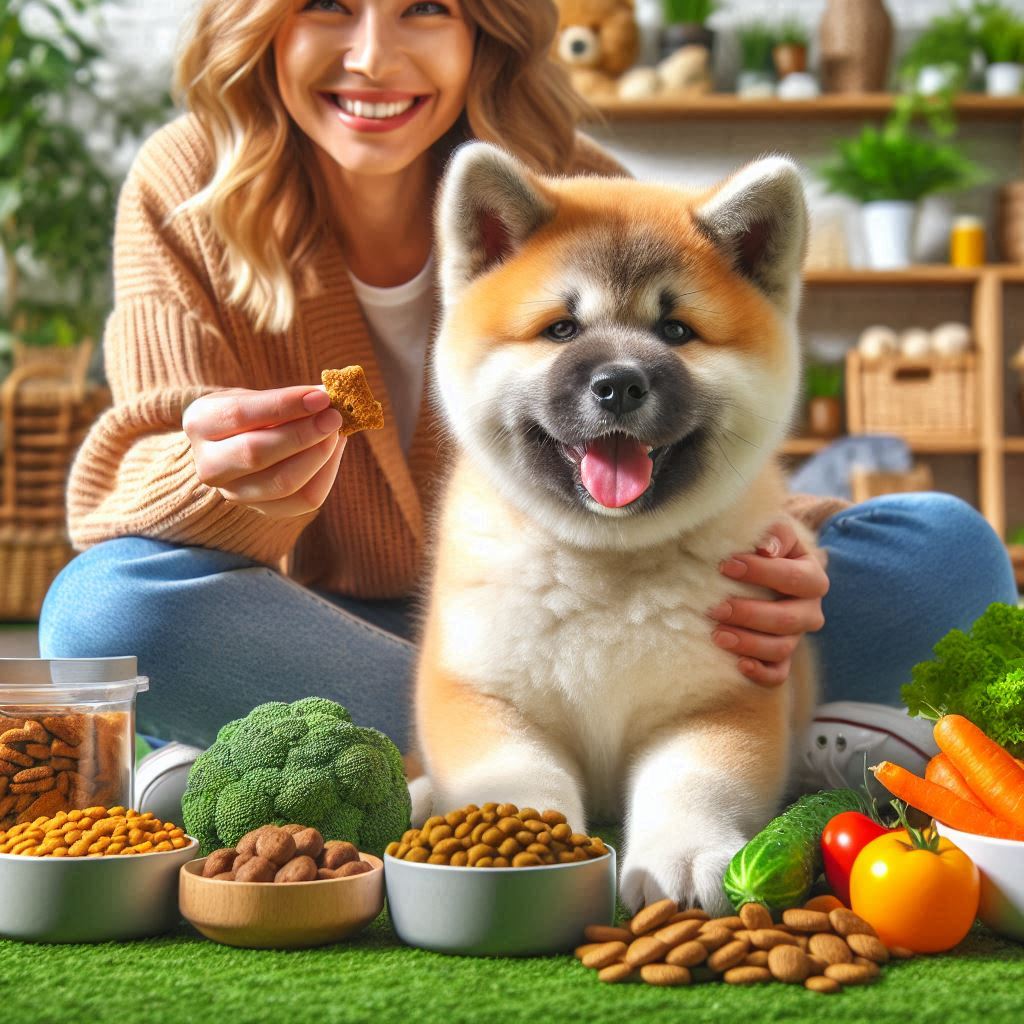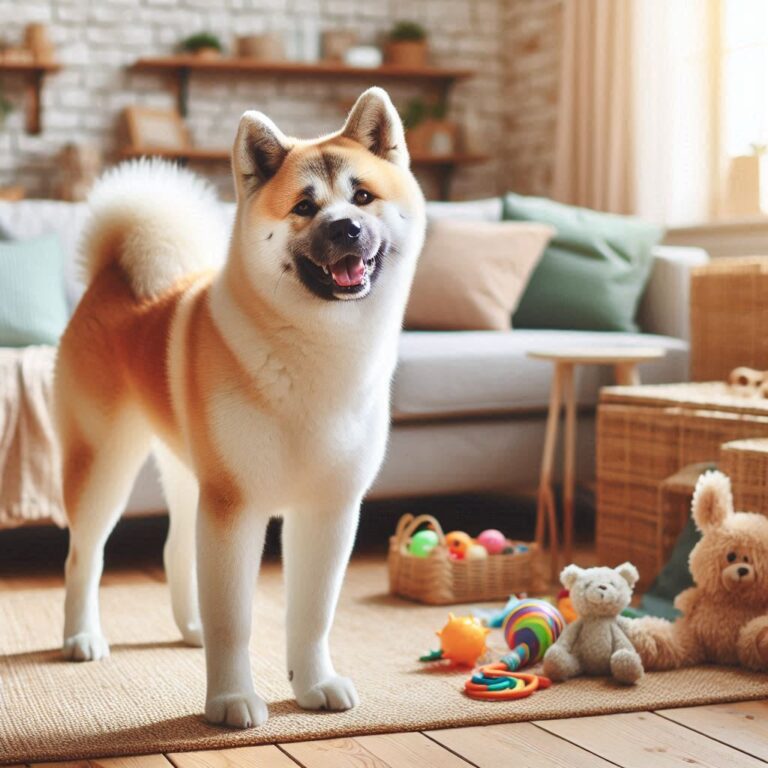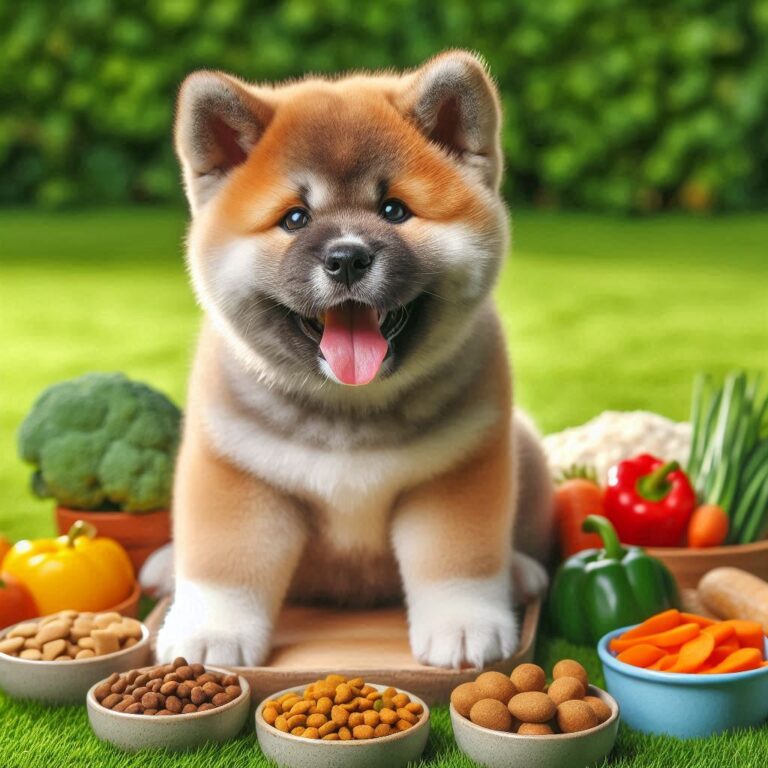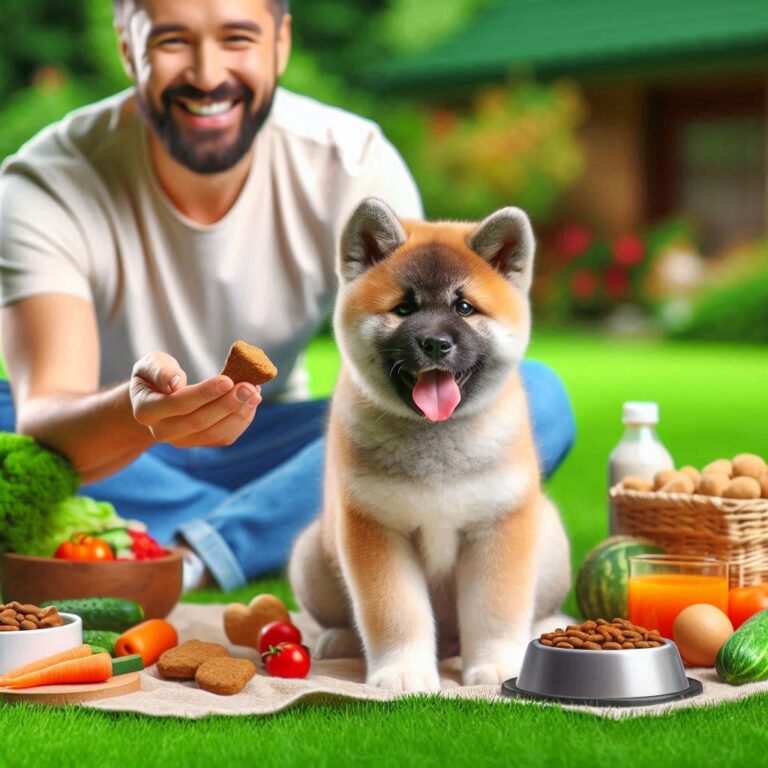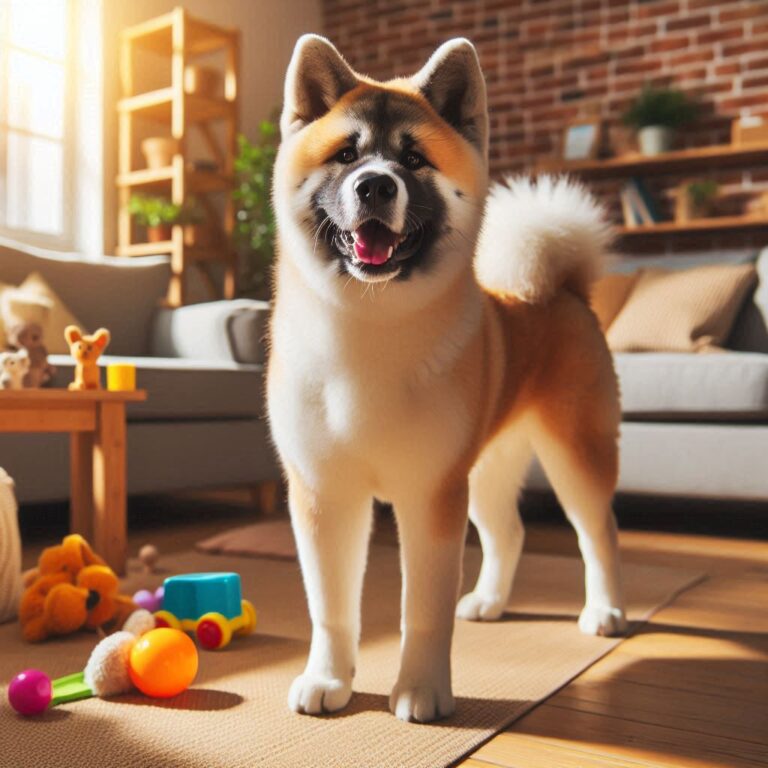These Are the Best Food Recommendations for an Akita Puppy

The nutritional needs of your Akita puppy are crucial for its growth now and, to some extent, determine how it will be in the future. This is one of the reasons why getting the best dog food for your Akita puppy from the long list of food options is crucial. In different proportions and without preference, here are some examples of foods that meet the nutritional needs of an Akita:
Chicken breast or thighs, salmon, beef or lamb muscle, duck, turkey, venison, or bison meat. Salmon oil, coconut oil, carrots, green beans or peas, apples or blueberries, pumpkin, spinach, meat stock, raw or cooked bones, blueberries or raspberries, canned or raw fish with high moisture content, and freshwater.
In order to prevent certain expenses, stress, and discomfort, it is so important to look out for what your Akita puppy eats. Among many other unpleasant situations, giving your Akita puppy food with sufficient nutrients at the appropriate level will also avert bloating, a situation that manifests as an uncomfortable, swollen stomach.
Nutritional Requirements Your Akita needs to grow.
The best diet for your Akita may be lying on the shelf at a cheap, costly, or unaffordable rate. Nonetheless, there are a few things to look out for if you are truly interested in what your Akita needs for maximal growth. They are;
- Protein (from meat)
- Healthy fat
- Water
- Little and specific carbohydrates
- Natural vitamins and minerals
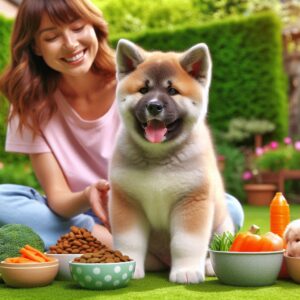
What to Feed Your Akita Puppy
As an Akita owner, it is your responsibility to make beneficial choices for your puppy, especially its food. Beyond making it delicious, it needs to be nutritional as well.
Dry food moistened with water, meat stock, or beef broth works so well for young Akitas. It is a great idea to give your Akita puppy chicken without bones since it can be too hard for puppies. However, since they cannot consume bones to drive sufficient calcium, they need a substitute like eggs or, better yet, blended egg shells.
In regards to other proteins foods, start feeding your Akita cooked chicken before moving to raw meat as it ages. Also, you can add to its meal cooked carrots, peas, sweet potato, and other ingredients as supplements for kibble.
Before making a choice or transition in your puppy’s diet, observe it to know if it prefers raw, canned, or dried food. On some occasions, you mustn’t feed your Akita what it likes but what is needed at the time, the expected outcome, and a veterinary prescription.
Nutritious Food for Your Growing Akita
Kibble is a convenient dry food for dogs. It doesn’t cost so much and can be stored easily. It has been a controversial subject that kibble in itself is not a balanced meal for dogs, owing to the fact that it is made up of more processed than natural ingredients. Nonetheless, dog owners have found a way to make kibbles more nutritional for their dogs by adding supplements. You can do the same for your Akita.
On another level, not all kibbles are the same. Some have more sugar, little carbohydrates, and so on. As a concerned Akita owner, it is your duty to go for the variety that suits your puppy best. In all, whichever good you go for should be rich in protein.
Again, get to know what your Akita puppy likes and what it is allergic to before settling for a particular food for it. There are other foods apart from the ones aforementioned that you may need to know about. Some are;
- Canned dog food
This dog food is often wet, which necessitates its container. It is most preferred by some dog owners because the food content contains moisture, which aids hydration in dogs. This kind of food eases your puppy from the stress of chewing food. In most cases, canned food tastes and smells great, appealing to the senses of dogs. Unlike kibbles, these foods need to be refrigerated once opened; otherwise, they may get spoilt or build up bacteria.
- Raw Dog Food
Dogs also employ their canines to eat raw food, such as meat. Raw food for dogs includes uncooked meats, eggs, bones, and dairy products that are fresh. These foods will provide your Akita puppy with more energy, healthier skin, a better smell, and ensure its overall well-being.
However, Akita puppies need care since they are tender. They mustn’t eat bones, except if it’s safe; otherwise, other calcium substitutes will do.

Best Food for Your Akita Puppy’s Health
The best foods to give your Akita can either be raw food or kibbles. Raw food is suitable for most Akita owners because it gives your Akita natural contents that are great for its health and reduces some health conditions caused by artificial food or too-fatty foods. However, the disadvantages of feeding your Akita raw food can be disastrous as a lot of precautions are to be taken to ensure that you are giving them the best raw food from the best source.
Kibbles are a very great ease and source of a well-balance and highly nutritious food for your Akita. I have been able to list out some of the very best dog food for your Akita puppies.
1. Purina Pro Plan High Protein Dry Puppy Food, Chicken and Rice Formula
The Purina pro plan provide your puppy’s nutritional needs with Chicken and Rice Formula dry puppy food. The food has high-quality protein sources, including chicken as the first ingredient, helps your puppy develop healthy muscles so he has plenty of energy for playtime. comes with DHA from omega-rich fish oil in this puppy formula nourishes his brain and vision development, and calcium, phosphorus and other minerals build strong teeth and bones. This super-premium puppy kibble has no artificial colors or flavors, and you can have confidence he is getting the 100 percent complete and balanced nutrition your dogs body needs at this early stage of development.
The ingredients include: Chicken, Rice, Poultry By-Product Meal, Corn Gluten Meal, Whole Grain Wheat, Beef Fat Preserved With Mixed-Tocopherols, Whole Grain Corn, Corn Germ Meal, Dried Yeast, Fish Meal, Natural Flavor, Dried Egg Product, Fish Oil, Soybean Oil, Mono And Dicalcium Phosphate, Calcium Carbonate, Salt, Potassium Chloride, Choline Chloride, Minerals [Zinc Sulfate, Ferrous Sulfate, Manganese Sulfate, Copper Sulfate, Calcium Iodate, Sodium Selenite], Vitamins [Vitamin E Supplement, Niacin (Vitamin B-3), Vitamin A Supplement, Calcium Pantothenate (Vitamin B-5), Thiamine Mononitrate (Vitamin B-1), Vitamin B-12 Supplement, Riboflavin Supplement (Vitamin B-2), Pyridoxine Hydrochloride (Vitamin B-6), Folic Acid (Vitamin B-9), Menadione Sodium Bisulfite Complex (Vitamin K), Vitamin D-3 Supplement, Biotin (Vitamin B-7)], L-Lysine Monohydrochloride, Garlic Oil. Y445821
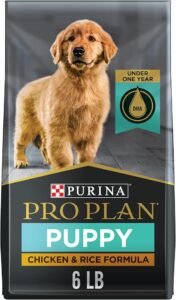
CLICK HERE TO BUY/VIEW ON AMAZON
2. ACANA Grain Free Dry Dog Food, Puppy Recipe
This dog food is a quality nutrition your puppy needs to thrive with ACANA Grain Free* Puppy Recipe Dry Dog Food. This high protein dog food is made for puppies with protein and fat from quality animal protein to support their development. Free-run chicken and free-run turkey and eggs are balanced with whole pumpkin, collard greens, apples and pears to create a protein-rich, nutritious puppy dog food. This ACANA dog food for puppies is 65%** quality animal ingredients and 35%*** wholesome fruits and vegetables. Even better, this grain free* dog food has a freeze dried coating for a delicious taste your puppy will crave. Choose ACANA dry dog food kibble to give your companion the nutritional foundation they need to live a happy, healthy life. *Produced in a facility that also processes grains **Approximate and derived from the unprocessed state of the ingredients ***We also add vitamins, minerals, natural preservatives, flavors and probiotic
The Ingredients Include: Deboned chicken, deboned turkey, chicken meal, whole green peas, whole red lentils, chicken fat, turkey meal, flounder, fish oil, lentil fiber, eggs, whole yellow peas, chicken broth, whole chickpeas, whole green lentils, whole pinto beans, pea starch, Natural chicken flavor, chicken liver, chicken heart, salt, dried kelp, zinc proteinate, mixed tocopherols (preservative), whole pumpkin, collard greens, whole apples, whole pears, calcium pantothenate, vitamin E supplement, thiamine mononitrate, freeze-dried chicken liver, freeze-dried turkey liver, copper proteinate, dried chicory root, turmeric, sarsaparilla, althea root, rose hips, juniper berries, citric acid (preservative), rosemary extract, dried Lactobacillus acidophilus fermentation product, dried Bifidobacterium animalis fermentation product, dried Lactobacillus casei fermentation product.
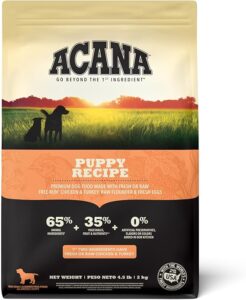
CLICK HERE TO BUY/VIEW ON AMAZON
3. Hill’s Science Diet Puppy, Puppy Premium Nutrition
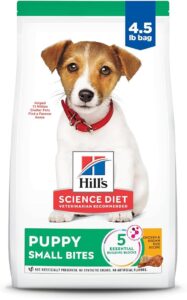

For those who prefer raw dog food, it is very important to get from the very best source, feed in the right portion and ensure that when feeding you serve a well-balanced dog food- One that has other nutrients in them.
The best diet for an Akita is a balanced meal that comprises protein, healthy fats, vitamins, carbohydrates, minerals, and fiber. The digestive system of Akitas does not go so well with starchy carbohydrates like rice and legumes when fermented.
You don’t need to crack your head if you don’t know what is best for your Akita puppy; simply get expert advice from a pet doctor so your puppy can enjoy a healthy life.
NOTE: Puppies start to nibble solid foods at 3 – 4 weeks of age. To feed kibbles, keep them moist at all times. Allow your puppy to eat at will until fully weaned (6 – 8 weeks). After weaning, kibbles can be fed moistened or dry. For best results, develop a regular feeding schedule such as three small meals a day for younger puppies. You can gradually reduce to one feeding in the morning and one in the evening as your puppy ages. The routine should not vary.
As puppies near adulthood, their calorie needs may drop, and your puppy may begin leaving some food in the bowl. Don’t misinterpret this as an indication of dislike for the food. Instead, begin offering less so your puppy doesn’t overeat and stays in ideal body condition. The indicated amounts to feed you puppy are only a guideline. If your puppy becomes overweight, a reduction of yon from your dog’s current food.
Each day, simply feed a little less of the previous food and a little more kibbles until you’re feeding more. This gradual transition will help avoid dietary upsets. Provide adequate fresh water in a clean container daily. For your pet’s health, see your veterinarian reularly.
In Closing
When it comes to feeding your Akita puppy, you have the golden sepulcher as a symbol of authority to permit or decline the predominant meal that feels its mouth and eventually, its belly. In regards to getting the best food for your Akita puppy, always keep in mind that food contributes to the puppy’s health. Once you intentionally figure out the best for it, you will notice how effectively it will function and how commendable its growth will be. When transitioning as well, observe it closely to know what works and what needs to be stopped for your Akita puppy to look, smell, feel, and live healthy.
- Best Dog Car Seat For French Bulldog - October 1, 2025
- How to Prevent Scratches on Hardwood Floors from Dogs - October 1, 2025
- How To Protect Hardwood Floors From Scratches - October 1, 2025
